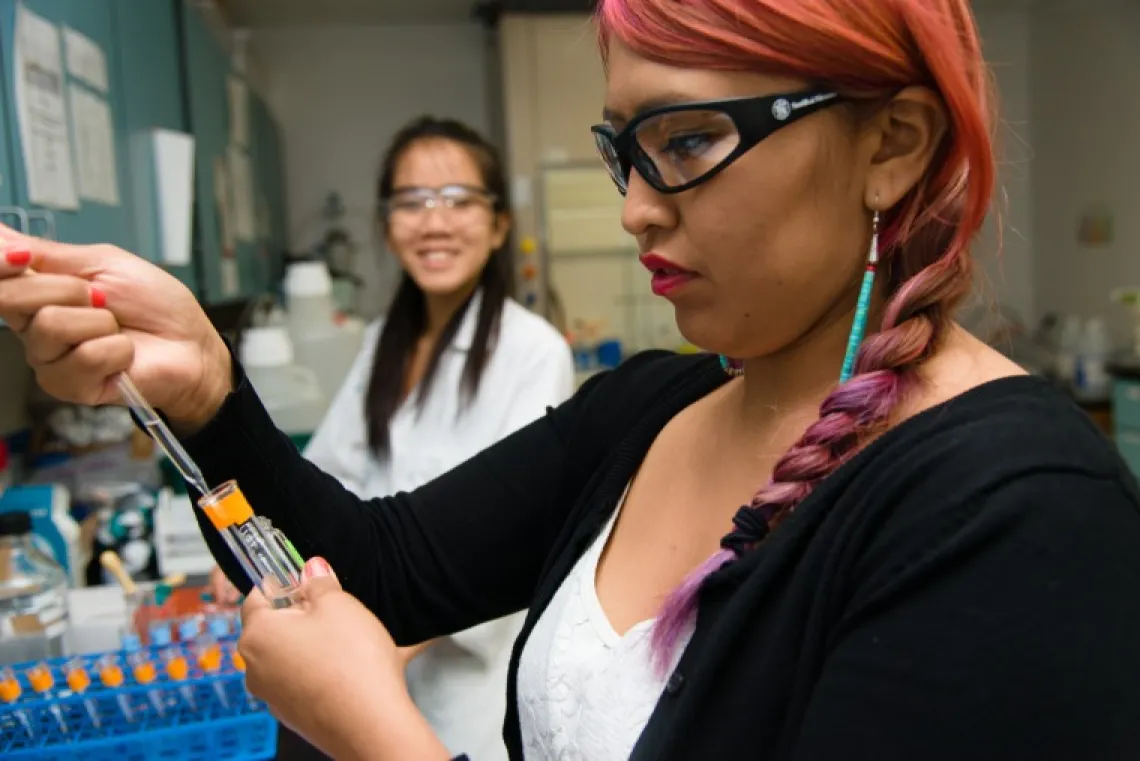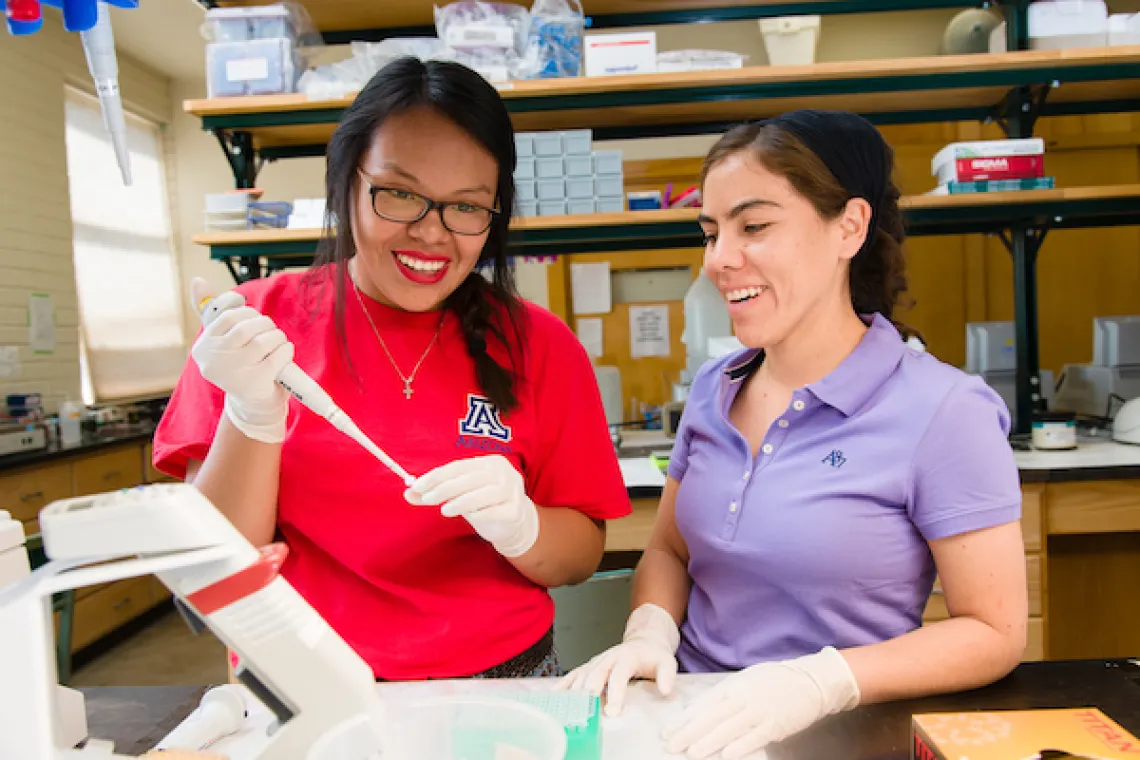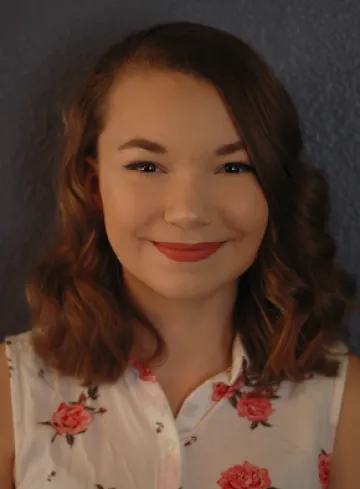Elevating and celebrating women and girls in science
The BIO5 Institute is proud to support the advancement of women and girls in STEM through hands-on experiential learning, engaged training, and embedded support programs.

Women make up nearly half of the U.S. workforce, but only one-quarter of the STEM workforce. Despite the necessity of diverse expertise in the science and tech-based fields driving the Fourth Industrial Revolution, women still account for only a slim minority of engineering, computer science, and informatics graduates.
In 2015, the United Nations General Assembly declared February 11 as the International Day of Women and Girls in Science, a day to promote full and equal access to and participation in science for women and girls, gender equality and female empowerment.
Compared to their male colleagues, females are typically awarded smaller grants and tend to have shorter or staggered and less lucrative careers. Their work is greatly underrepresented in high-impact journals, and they are often overlooked for promotion.
The opportunity to change these statistics is something that the University of Arizona and the BIO5 Institute are tackling head-on.
Directed by fearless female leader Jennifer Barton, the Thomas R. Brown Distinguished Professor of biomedical engineering, the BIO5 Institute helps to advance the education and careers of girls and women in STEM - from high school students to faculty members - by providing unique learning and employment opportunities, a collaborative culture that celebrates diversity, support programs, internships, and mentorship.
"It is inherent in BIO5's mission to develop unique programs that engage and inspire not only our current faculty, but also our next generation of scientists. BIO5’s programs are national models for how to do this effectively, even at the pre-college stage," said Barton.
Opportunities for the next generation workforce
The BIO5 Institute’s KEYS Research Internship immerses talented Arizona high school students in hands-on research experiences with real-world applications that spark scientific curiosity and discovery, which can play a huge role in helping them decide whether to pursue science careers. For many students, this will be the first time they are exposed to science outside of a textbook and are able to interact with scientists as real people.

A KEYS student and her mentor in Melanie Culver's lab.
Since its inception in 2007, KEYS has placed great emphasis on training students of underrepresented minorities in STEM. To date, females comprise 64% of the 576 program alumni, a large majority of whom also represent traditionally underserved races and ethnicities. Many of these students have gone on to pursue advanced graduate and professional degrees in the sciences.
BIO5 also provides unique training and professional development opportunities for undergraduate and graduate students, including the BIO5 Ambassadors program.

Jordan Pilch
Jordan Pilch is a current UArizona undergraduate, BIO5 Public Affairs student assistant, KEYS Research Internship alumna, and co-facilitator of the BIO5 Ambassadors program. She’s passionate about increasing access to science for females, particularly through mentorship.
“It’s not that women don’t have the drive to get into the STEM fields,” Pilch said, “but once they go into them, they don’t always have someone they can work with and bring up their issues to that has had a similar life experience.”
Throughout her undergraduate career, Pilch has been mentored by several accomplished women, including her former KEYS mentor – Pascale Charest, associate professor in the College of Science and BIO5 member – and current research mentor – Molly Bolger, associate professor of molecular and cellular biology – both female scientists and educators in their respective fields.
“The biggest mentors in my life have been Brooke Moreno (former KEYS co-coordinator) and Bolger. Brooke is the person who I aspired to be like – a confident person who is passionate about helping students succeed while maintaining a family and social life. Bolger has been the person who has encouraged me to take scary steps towards my career and gave me a second chance at research when I felt uncomfortable with my ability to contribute in academia,” Pilch said.
Former BIO5 Ambassador and UArizona alumna Lexi Carbine similarly saw a need for female mentors.
“I was searching for someone to look up to,” Carbine said, “but I didn’t see the representation of a lot of women in my professors at UArizona, or even in high school.”
To provide girls and young adults with resilient female role models and encourage them in their pursuit of a STEM career, Carbine established the blueprint for the annual BIO5 Inspiring Women in STEM (WiS) event in 2019 when she was a student assistant on the BIO5 public affairs team. The WiS event supports women and girls in the sciences by giving voices to strong females who are willing to share their scientific and life experiences through candid conversations where women and girls can learn from one another.
“To develop a robust workforce of the future, we must encourage women and girls to explore STEM disciplines and give them opportunities for success,” said Lisa Romero, BIO5 executive director of public affairs, communications, and engagement. “We are lucky to have inspiring role models who have navigated successful STEM journeys of their own, and in turn, share their earned wisdom.”
Pushing scientific boundaries as a female professional in STEM
BIO5 also supports female faculty members in their pursuit of scientific discovery and career advancement.
Kristen Pogreba-Brown, assistant professor in the College of Public Health, is one example of an accomplished female investigator at BIO5. Through her public health-focused epidemiological studies, she enhances knowledge of how infectious diseases arise, spread, and are affected by current prevention and control methods. With help from a BIO5 COVID-19 RAPID seed grant, Pogreba Brown and four other UArizona female faculty members launched CoVHORT – a research study collecting data from patient interviews to better understand the short- and long-term impacts of the pandemic.
The epidemiologist also joined forces with Joyce Schroeder, molecular and cellular biology department head and BIO5 member, to design plans for COVID-19 testing, tracing, isolation, and medical care at the university when the pandemic began. Their early efforts were essential in optimally resuming in-person university operations, and continue to play a role in the ever-changing, responsive landscape of the university’s COVID-19 response.
Together, these inspirational students, researchers and mentors bring unique perspectives and prowess to science. The BIO5 Institute is proud to empower women and girls of all levels of education and career stages in their pursuit of doing science.
